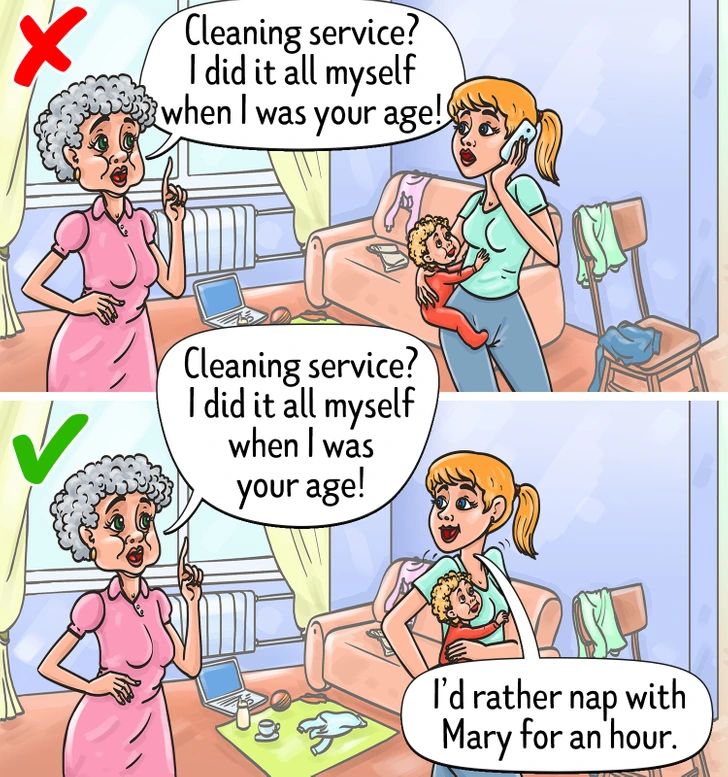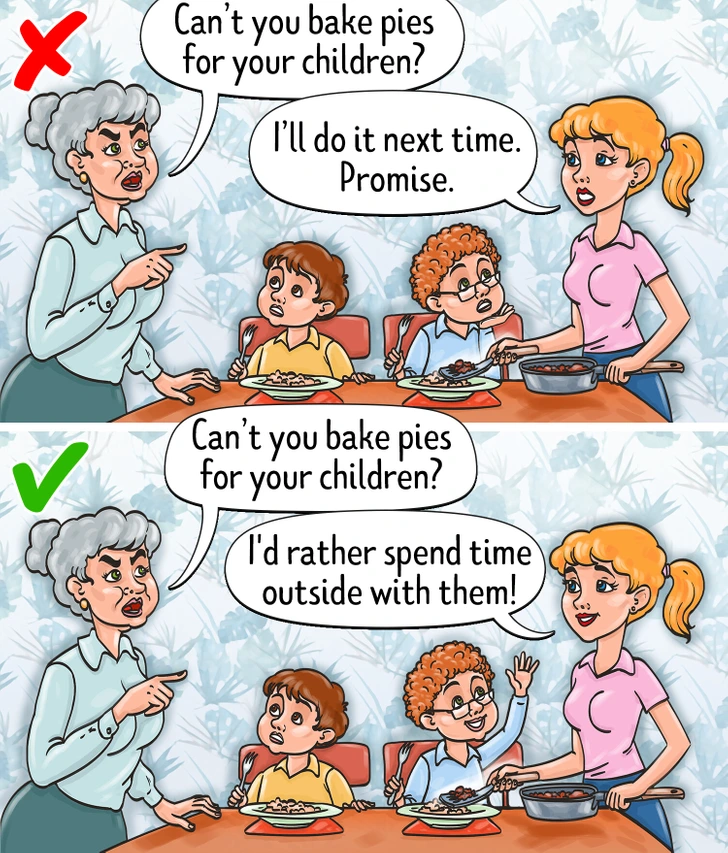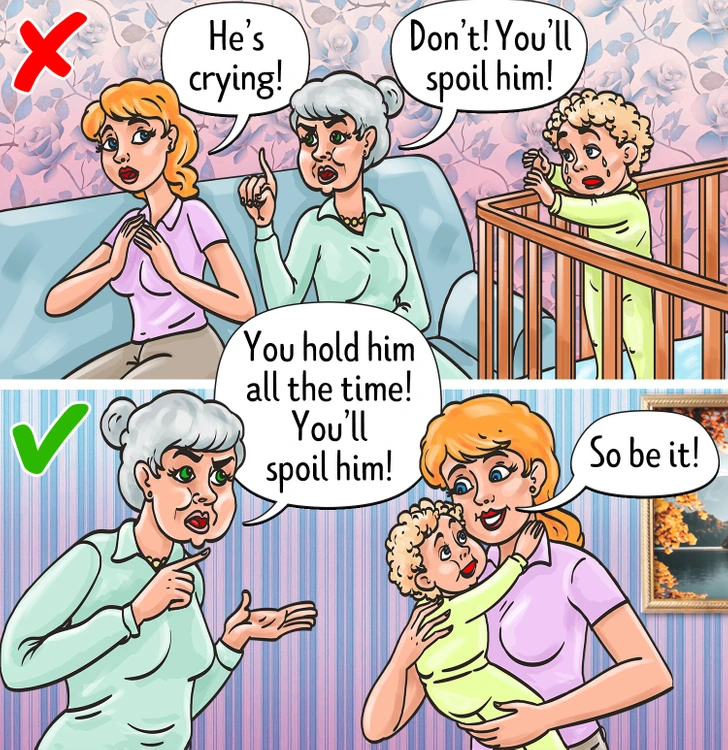Parenting trends evolve just as society does, with many practices that were once seen as controversial now widely accepted. From encouraging open expression to accepting the occasional mess, modern parents are embracing approaches that promote their children’s emotional well-being and independence. Here’s a look at nine parenting tricks that were once frowned upon but have now become completely normal.
1. Letting Kids Express Their Emotions Freely

In the past, children were often expected to “be seen and not heard,” with little room for expressing emotions openly. Now, parents recognize the importance of letting kids share their feelings. Whether it’s anger, joy, or sadness, parents today understand that acknowledging emotions helps children develop emotional intelligence and self-awareness.
Allowing children to communicate their feelings helps them learn healthy ways to handle emotions. By encouraging open expression, parents set the stage for kids to become emotionally mature adults who know how to express themselves without fear.
2. Setting Boundaries with Family Members

Years ago, it was common to see grandparents or extended family members play a big role in a child’s upbringing, often stepping in with unsolicited advice. But today’s parents understand the importance of setting boundaries—even with loved ones. By politely asserting these limits, they can ensure that their parenting style and choices are respected.
This shift allows parents to maintain control over their household and helps children see that boundaries are healthy and essential in all relationships, even within the family.
3. Asking for Help Without Shame

For previous generations, admitting you needed help with parenting was often seen as a weakness. Today, parents know it’s perfectly okay to ask for support. Whether it’s hiring a babysitter, relying on a cleaning service, or simply seeking advice from fellow parents, asking for help is no longer taboo.
Parenting is challenging, and today’s families recognize that teamwork is essential. By normalizing asking for help, parents can prevent burnout and maintain a balanced life, all while teaching their kids that it’s okay to seek support when needed.
4. Validating a Child’s Feelings Without Fear of “Spoiling” Them

There used to be a belief that acknowledging a child’s feelings too much could “spoil” them or make them too sensitive. Now, parents know that validating a child’s feelings doesn’t spoil them; rather, it builds trust and respect. When children feel heard and understood, they’re more likely to develop strong self-esteem and the ability to process emotions effectively.
Listening to children and empathizing with them can create a stronger bond, helping them feel secure in expressing their feelings openly and confidently.
5. Emphasizing Quality Time Over Elaborate Meals

In the past, parents might have felt pressure to prepare elaborate, home-cooked meals every night. Today, many families recognize that spending quality time with kids can be more valuable than slaving away in the kitchen. Whether it’s a quick homemade meal or a pizza night, the focus has shifted to enjoying time together over making everything perfect.
Parents are choosing to spend their time teaching kids fun kitchen skills or simply sitting down for a meal and conversation. This emphasis on quality time over perfection creates a relaxed atmosphere, fostering connection without added stress.
6. Teaching Kids to Respectfully Question Authority

Once upon a time, children were expected to obey all adults without question. Now, parents understand that teaching kids to respectfully question authority is important for their development. Encouraging kids to think critically and respectfully challenge opinions helps them build confidence and fosters independence.
While respect for elders is still valued, today’s parents aim to raise children who feel comfortable questioning things that don’t seem right, empowering them to stand up for themselves and make thoughtful decisions.
7. Embracing the “Messy” Parts of Parenting

Cleanliness and order used to be seen as signs of good parenting, but today’s parents are more likely to let go of the need for a spotless home. They realize that life with kids can be chaotic, and that’s okay. Sometimes, the memories made from a baking session or a spontaneous art project are worth a bit of mess.
Parents today understand that a little chaos is normal and can actually contribute to a child’s creativity and sense of freedom. Instead of stressing over clutter, they focus on creating experiences that are meaningful for their kids.
8. Accepting That Babies Can’t Be “Spoiled”

Older generations often believed that responding to a baby’s cries too quickly would spoil them. Now, we understand that babies cry because they need something—whether it’s food, comfort, or reassurance. Responding to a baby’s needs promotes security and attachment, which is essential for their emotional development.
Modern parents know that being attentive to a baby’s needs builds a strong foundation for trust. This approach emphasizes that babies are simply learning to communicate, and there’s no harm in offering comfort when they seek it.
9. Showing Empathy to Teach Empathy

In the past, a child who didn’t show empathy right away might have been seen as “bad” or rude. Today, we know that children learn empathy through example. By showing empathy to their kids, parents can help them understand the value of kindness and compassion.
Whether it’s explaining why someone feels sad or helping them make amends for a mistake, parents are focused on guiding kids toward empathy rather than reprimanding them. This patient approach helps children develop emotional intelligence and respect for others.
Conclusion: Redefining Parenting Norms for a Healthier Future
As society changes, so do parenting norms, and these nine formerly “taboo” approaches have proven to be essential in raising well-rounded children. Today’s parents prioritize their children’s emotional and mental well-being, teaching them essential life skills through empathy, respect, and quality time. By embracing these modern parenting techniques, families are creating environments where children feel secure, valued, and empowered.
Gone are the days when strict rules and silent obedience were the benchmarks of good parenting. Instead, today’s parents are raising a generation of thoughtful, self-aware, and confident individuals who will carry these valuable lessons into the future.


